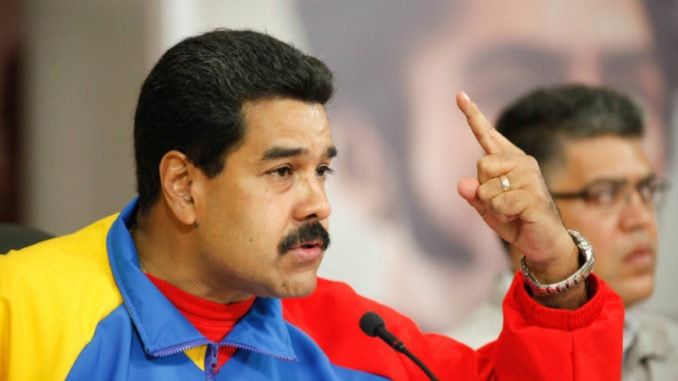
CARACAS – Venezuela published its oil prices in Chinese yuan for the first time on Friday, making good on its promise to layoff the U.S. dollar.
Last Friday, Maduro had announced the forthcoming change, but that warning came after 14 years of similar threats, made by former leader Hugo Chavez, who was sure the dollar would someday lose its place in the currency pecking order.
Venezuela’s choice to price its oil in yuan is an interesting, if not toothless maneuver, that goes against earlier reports that it would favor the Euro. Still, the oil prices appear to be based on a U.S. dollar to Yuan conversion.
Venezuela plans to abandon the U.S. dollar; greenback currently sells for 22.400 Bolivar
It is unlikely that China would ever join Washington on its quest to force Mauro to end his campaign to rewrite Venezuela’s constitution in what many see as a step in bringing the downtrodden country closer to dictatorship, so the choice of yuan seems a safe one, if nothing else.
After all, Venezuela has borrowed nearly $60 billion from China in exchange for selling oil at a discount—the details of which are a bit murky.
But safe, Venezuela is not, as its state-run oil company, PDVSA, slips ever closer to default, and with little hope that things will turn around. And that $60 billion that Venezuela owes to China is supposed to be paid back in oil—oil that Venezuela isn’t producing.
Maduro to sell Venezuelan oil in currencies other than U.S. dollar
Venezuela’s production, according to OPEC’s secondary sources, have been on a steady decline in recent years, averaging 2,375 bpd in 2015, and falling to 2,159 bpd in 2016. Venezuela’s 2017 production fell even further, starting out in Q1 averaging 2,057 bpd and finally reaching an average of 1,918 bpd in August.
While Venezuela struggles to find its footing through angry jabs at the US sanctions, the Venezuelan people are in the middle of a humanitarian crisis, with food and medicine shortages abounding.



